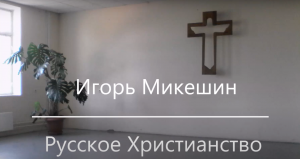5.6.2023
Concluding project workshop “Religion, self-making, and the ethical life”
The research project is coming to an end soon. To discuss the project theme, research results, and future perspectives, the project held a concluding workshop in Helsinki. The project participants and international guests discussed their own research projects in the context of religion and ethical self-making.
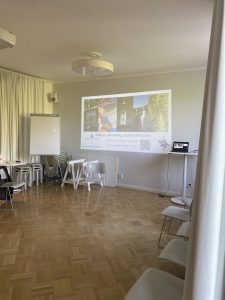
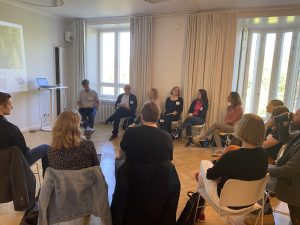
27-28.07.2022
Members of the research group organized a conference panel
Members of the research group organized a panel entitled “Devotional means of ethical self-transformation” at the bi-annual conference of the European Association of Social Anthropologists at Belfast, Northern Ireland. It was held in a hybrid format.
Convenors:
Timo Kaartinen (University of Helsinki)
Dorothea Schulz (University of Münster)
Abstract:
The topic of this panel is ethical and religious learning. Reflecting on Charles Taylor’s notion of the buffered self, we explore how people learn to manage the buffer between the mind and the world in pursuing self-transformation.
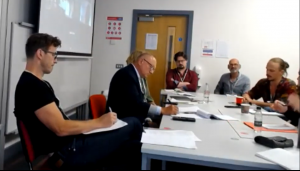
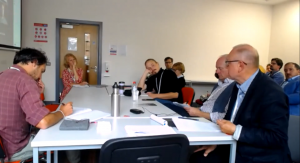
01.02.2022
Igor Mikeshin published a journal article
Mikeshin, Igor. 2021. “How the Bible Works: Russian Baptist Faith as Text.” Religion and Society. Advances in Research 12 (1): 102–14. (https://doi.org/10.3167/arrs.2021.120108)
24.05.2021
“Religion, Self and the Ethical Life” Research Group Workshop
On May 24, 2021, our research group held a workshop with the participation of some of our research collaborators.
Session 1. Discussant: Timo Kaartinen.
Elina Hartikainen
“May the good mouths speak well of Pai Raimundo.” Reputation, Religion, and the Moral Politics of Ethnoracial Policy
Igor Mikeshin
Sex as an ethical affordance in the Russian Baptist community
Minna Kulmala
Gendered ethics: on the role of gender, reason, and emotions in ethical self-making in the Siberian community of the Last Testament Church
Sidney Castillo
Beyond mysticism and instrumentalization: arguments for a decolonization of ayahuasca
Session 2. Discussant: Toomas Gross
Tea Virtanen
From Everyman’s Praise Singers to Nascent Pop Stars: Mbororo youth performers in transition in Cameroon
Timo Kaartinen
Islamic and Anthropological Interpretations of the Religious and the Secular
Timo Kallinen
In and out of Christianity: religious exclusivity and the morality of choice in Ghana
15.05.2021
Toomas Gross has published two journal articles.
Gross, T. (2021). Bodies as Arenas of Experimentation: Experiencing Novel Ways of Running. Journal of Contemporary Ethnography. (https://doi.org/10.1177/0891241621996789)
Gross, T. (2021) “Some People Smoke and Drink, I Run”: Addiction to Running Through an Ethnographic Lens. Leisure Sciences. (https://doi.org/10.1080/01490400.2021.1877583)
05.01.2021
Igor Mikeshin has started a YouTube channel “Russian Christianity”
Igor Mikeshin has started a YouTube channel aimed towards a wider Russian-speaking audience interested in Russian-speaking Christianity and varieties of Christianities in Russia.
https://www.youtube.com/channel/UC12uSiDIffsBX6MAcleOrzA
31.12.2020
Igor Mikeshin has published two journal articles.
Mikeshin, Igor. 2020. “‘A Prophet Has No Honor in the Prophet’s Own Country’: How Russian Is Russian Evangelicalism?” Temenos: Nordic Journal of Comparative Religion 56 (2): 251–68. (available online at: https://journal.fi/temenos/article/view/75254)
Mikeshin, Igor. 2020. “‘Sex Is like a Brick Wall’: Moderate Biblical Conservatism of Russian Baptists.” Etnofoor 32 (2): 31–47.
17.11.2020
We are hiring a PhD candidate.
We have received many high quality applications and started reviewing them. The candidates will be notified soon. We thank everyone who has been interested in our position!
17.08.2020
We are hiring! Our research group “Religion, self and the ethical life” is recruiting a PhD candidate
The research project “Religion, self and the ethical life”, funded by the Academy of Finland and Kone Foundation, invites applications for the position of a DOCTORAL CANDIDATE in Social and Cultural Anthropology for a term of 12 months starting from 1 September, 2021. During this period, the doctoral candidate will receive funding from the Kone Foundation (2300 euros/month). Successful work in this appointment makes the doctoral candidate qualified for a second 12-month appointment, in a sister project funded by the Academy of Finland.
The successful applicant will join a research team led by Professor Timo Kaartinen and Dr Toomas Gross. Currently, the team includes five anthropologists, working in four different contexts (Indonesia, Cameroon, Russia, and Mexico). We are looking for a doctoral student who will carry out ethnographic research with a theoretical focus on religion, ethics, and ethical self-making (in any geographical context).
Successful candidate is expected to work full time on his/her doctoral dissertation during the period of recruitment and to complete the doctorate within four years from the beginning of the studies. Teaching tasks can account for up to 5 % of the annual working time (while being funded by the Academy of Finland).
QUALIFICATIONS
Applicants should hold a Master’s degree in Anthropology or a closely related field and have a high quality research proposal. Other requirements include proven ability and motivation, demonstrated through previous degree studies or otherwise, capacity to pursue postgraduate studies and a doctoral degree according to the study plan and research proposal. Fluency in English language is required. The appointee is expected to reside in Finland while employed by the project.
We welcome applications from candidates at different stages of their doctoral career, including beginning PhD students. The appointee should either already have the right to pursue a doctoral degree at the University of Helsinki or apply for the right and obtain it by the time of the start of the appointment. Information about applying to pursue a doctoral degree at the University of Helsinki can be found from here: https://www.helsinki.fi/en/research/doctoral-education/the-application-process-in-a-nutshell
HOW TO APPLY
Applicants are requested to enclose with their applications the following documents as a single pdf file:
- A curriculum vitae (max 2 pages).
- A list of publications and conference papers.
- A research plan not exceeding four (4) pages including a statement outlining how the proposed topic fits to the profile of the project.
- A letter of recommendation by a current or former academic advisor.
- Contact information.
Please submit your application by email to Timo Kaartinen (timo.kaartinen_at_helsinki.fi) and Toomas Gross (toomas.gross_at_helsinki.fi). The deadline for applications is 15 November, 2020. The shortlisted candidates will be interviewed in December, 2020.
19.07.2020
Igor Mikeshin has published an edited volume on Russian speaking Christianity
Igor Mikeshin’s edited collective monograph titled “Eight Essays on Russian Christianities” is out and available online on the publisher’s website: http://ideashistory.org.ru/eightessays.html
“Eight Essays…” is a work of ten scholars of Russian Christianity. It brings together research on Sociology, History, Theology, and Anthropology of Russian Christianity.
Mikeshin, Igor, ed. 2020. Eight Essays on Russian Christianities. St. Petersburg: Saint Petersburg Center for the History of Ideas.
ISBN: 978-5-907223-79-0
DOI: 10.6084/m9.figshare.12668921.
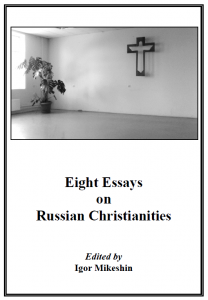
14.05.2020
Igor Mikeshin has published a chapter on the Russian Baptist rehabilitation ministry.
Igor Mikeshin’s chapter in the collected volume Lived Religion, Conversion and Recovery: Negotiating of Self, the Social, and the Sacred has come out. It is titled “‘It Was Easier in Prison!’: Russian Baptist Rehab as a Therapeutic Community, Monastery, Prison, and Ministry.”
https://doi.org/10.1007/978-3-030-40682-0
11.04.2020
Igor Mikeshin’s presentation at the conference “The Study of Religion: Past, Present, Future,” (Moscow, Russia, April 10-11, 2020)
Igor Mikeshin presented a paper titled “‘And who is my neighbor?’: Family and gender in the moral discourse of evangelicals.” The conference was held via Zoom due to COVID-19 pandemic.
The conference was organized by Russian Society for the Study of Religion, St. Tikhon’s Orthodox University, Russian State University for the Humanities, and the National Research University Higher School of Economics.
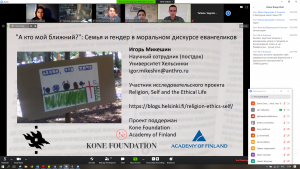
4.12.2019
Timo Kaartinen’s article on Indonesia and the Malay World.
Timo Kaartinen has published an article titled “Islamic Transformations in the Periphery of Maluku, Indonesia.”
https://doi.org/10.1080/13639811.2019.1583428
Abstract
The article explores Islam as an element of the social and symbolic formations created in the context of long-distance trade relations in the Aru and the Kei islands of southeast Maluku. The Muslim migrants and traders who settled in the area in the early colonial period created places that served as entry points to the local, autochthonous society. Even as these sites allowed Muslims to control access to local cultural domains, they allured local people with possible access to trade wealth and mobility. By creating conceptual and tangible boundaries around the indigenous domain, early Islam anticipated the contrast between universally valid religious convictions and materially embedded cultural forms. This contrast became significant after the large-scale conversions to Christianity and Islam in the late colonial period. Islam was also transformed by its interaction with various cosmopolitan discourses, but it has remained more accommodating than Christianity towards socially embedded ritual practices and material symbols. This raises the question whether ‘cultural Islam’ should be defined by its neutral, apolitical attitude towards the secular state which is complicated by the fact that the culturally embedded Islam in Maluku took form in the absence of centralised state power.
19.11.2019
Igor Mikeshin’s paper at a two-day workshop “Family values and related ethical issues: a cross-cultural analysis of debates and mobilizations in Europe” (Moscow, Russia, November 14-15, 2019).
On the 15th of November, Igor Mikeshin presented his research with a paper titled “‘Marriage should be honored by all, and the marriage bed kept pure’: Biblical Family in Russian Baptist Church.”
The workshop has been organized by Centre d’études franco-russe, Sciences Po, Universität Innsbruck, and Russian State University for the Humanities
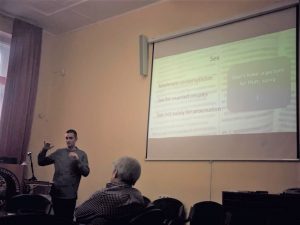
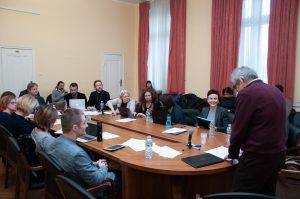
3.9.2019
The project panel “Religion, Temporality, and Contemporary Ethical Self-Making” at the Biennial Conference of the Finnish Anthropological Society 2019 (Helsinki, August 29–30, 2019).
The panel has been a great success with ten fascinating presentations and lively discussions.
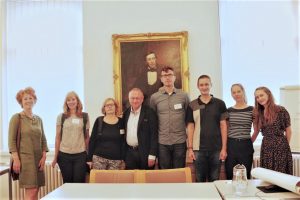
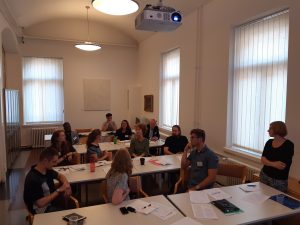
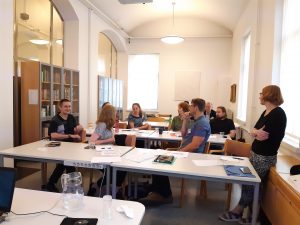
13.4.2019
Papers at the panel “Religion, Temporality, and Contemporary Ethical Self-Making” at the Biennial Conference of the Finnish Anthropological Society 2019 (Helsinki, August 29–30, 2019)
Session 1 (Chair: Toomas Gross)
Timo Kaartinen (University of Helsinki): Ethics in Indonesia’s Islamic education
Timo Kallinen (University of Eastern Finland): Born-again or reincarnated? Christianity, chieftaincy and ethical self-making in Ghana
Dorothea E. Schulz (University of Münster): Anticipating a future in times of distrust: Muslim youth, religion, and waithood in southwestern Uganda
Gideon Tetteh (University of Eastern Finland): Paradigm shift in Pentecostal Fundamental Ethics and Self-making
Tea Virtanen (University of Helsinki): Dancing through life in the mosque? Spatiotemporalisation of the right action within two Muslim Mbororo trajectories in Cameroon
Session 2 (Chair: Tea Virtanen)
Elina I. Hartikainen (Helsinki Collegium for Advanced Studies): A Candomblé Model of Social Harmony: Religious Hierarchy, Respect and Inclusion as the Past and Future of Brazilian Democracy
Minna Kulmala (University of Helsinki): Changing Selves on the Edge of Times: Ethical Self-Making in the Siberian Community of Vissarion
Igor Mikeshin (St. Petersburg State University/University of Helsinki): “The kingdom of heaven has come near”: The perceptions of time in the Russian Baptist self-making.
Anna Rikama (University of Helsinki): The one who endures to the end will be saved: Temporal aspects of the Twelve Tribes’ millennialism
Toomas Gross (University of Helsinki): The collective self reconfigured: Accommodating religious pluralism in rural Oaxaca
15.3.2019
Call for papers: “Religion, Temporality, and Contemporary Ethical Self-Making”
Panel at the Biennial Conference of the Finnish Anthropological Society 2019 ( Chairs: Toomas Gross and Tea Virtanen)
The study of ethics has been one of the emerging trends in recent anthropology. This panel approaches the topic by focusing on the role of religion and spirituality in constituting ethical lives. Many religions affirm ethics as the pursuit of virtues, rules, and habits that are distinct from the ethical issues of (secular) everyday life. In contemporary global situation, however, religion tends to intervene in secular domains in novel ways that allow performing one’s (religious) ethical values and choices in increasingly diverse contexts.
The panel brings together ethnographic case-studies of religiously/spiritually motivated ethical self-making in today’s era – when the idea of distinct religious and non-religious spaces and actions has become challenged. More specifically, we invite papers that scrutinize the temporal dimensions of such ethical self-making. To what extent are different conceptualizations of time present in the self-fashioning that builds on religious practices and beliefs? How do “past,” “present,” and “future” figure in these discourses, and how does the religious/secular divide relate to different temporalities? If understood as a process of “becoming,” does ethical self-making happen through making a sudden break with the past or does it rather take a shape of gradual spiritual progress? What is the relationship between the two temporal dimensions of an ethical practice – its experience in the present and its orientation towards the future? The panel invites also papers with other temporal angles, such as the relationship between spiritual and secular time, as well as the differences between religious and secular time management.

